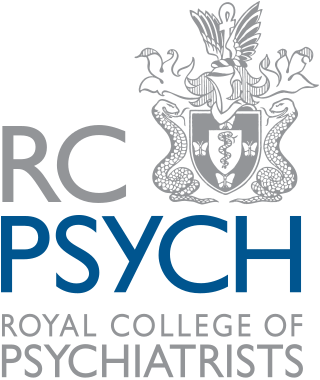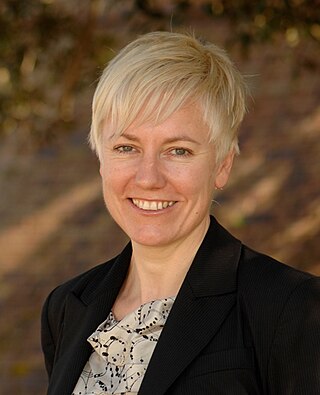Related Research Articles

The United Nations Foundation is a charitable organization headquartered in Washington, DC, that supports the United Nations and its activities. It was established in 1998 with a $1 billion gift to the United Nations by philanthropist Ted Turner, who believed the UN was crucial for addressing the world's problems. Originally primarily a grantmaker, the UN Foundation has evolved into a strategic partner to the UN, mobilizing support to advance the Sustainable Development Goals (SDGs), and help the UN address issues such as climate change, global health, gender equality, human rights, data and technology, peace, and humanitarian responses. The UN Foundation's main work occurs through building public-private partnerships, communities, initiatives, campaigns, and alliances to broaden support for the UN and solve global problems. The UN Foundation has helped build awareness and advocate for action on, among others, antimicrobial resistance, regional action on climate change, local implementation of the SDGs, as well as global campaigns such as Nothing But Nets against malaria, the Measles & Rubella Initiative, the Clean Cooking Alliance, Girl Up, Shot@Life, and the Digital Impact Alliance, among others. In March 2020, the UN Foundation was also a key founder of the COVID-19 Solidarity Response Fund on behalf of the World Health Organization (WHO), helping to raise over $200 million USD within the first six weeks to support the global response to the COVID-19 pandemic.
Students for Sensible Drug Policy (SSDP) is an international nonprofit organization advocacy and education organization with focus on drug policy, war on drugs, marijuana legalization, psychedelics, juvenile justice and youth rights, drug decriminalization, criminal justice reform. SSDP promotes global youth civic engagement as a tool in reforming drug policy.

The Rajiv Gandhi Foundation was established on 21 June 1991. The foundation works on a range of issues including development of knowledge, health, disability, authorization of the destitute, livelihoods and natural resource management. Its current focus areas are community welfare, literacy, health and special programmes for children and women. All donations to the foundation are tax deductible to the extent of 50 percent under section 80G of the Income Tax Act.
TAFE NSW is an Australian vocational education and training provider. Annually, the network trains over 500,000 students in campus, workplace, online, or distance education methods of education. It was established as an independent statutory body under the TAFE Commission Act 1990. The Minister for Regional Development, Skills and Small Business is responsible for TAFE NSW.

Ålands Penningautomatförening or Paf is a money gambling operator based on the Åland Islands in Finland and owned by the regional government.

The Royal College of Psychiatrists is the main professional organisation of psychiatrists in the United Kingdom, and is responsible for representing psychiatrists, for psychiatric research and for providing public information about mental health problems. The college provides advice to those responsible for training and certifying psychiatrists in the UK.
Gambler's Help is a network of agencies funded by the State Government in Victoria, Australia to provide a range of community served for gambling related issues. Gambler's Help is administered by the Victorian Responsible Gambling Foundation, but receives funding from the Community Support Fund which receives a portion of the profits from the operation of gaming machines in Victoria.

Social finance is a category of financial services which aims to leverage private capital to address challenges in areas of social and environmental need. Having gained popularity in the aftermath of the 2008 Global Financial Crisis, it is notable for its public benefit focus. Mechanisms of creating shared social value are not new, however, social finance is conceptually unique as an approach to solving social problems while simultaneously creating economic value. Unlike philanthropy, which has a similar mission-motive, social finance secures its own sustainability by being profitable for investors. Capital providers lend to social enterprises who in turn, by investing borrowed funds in socially beneficial initiatives, deliver investors measurable social returns in addition to traditional financial returns on their investment.
Illicit drug use in Australia is the recreational use of prohibited drugs in Australia. Illicit drugs include illegal drugs, pharmaceutical drugs when used for non-medical purposes, and other substances used inappropriately. According to government and community organisations, the use and abuse, and the illegality, of illicit drugs is a social, health and legal issue that creates an annual illegal market estimated to be worth A$6.7 billion. Estimates made in 2022 place the figure at A$11.3 billion per year.
The Canadian Race Relations Foundation is a charitable organization and Crown corporation responsible to foster racial harmony and cross-cultural understanding and help to eliminate racism in Canada.
UNICEF, originally called the United Nations International Children's Emergency Fund in full, now officially United Nations Children's Fund, is an agency of the United Nations responsible for providing humanitarian and developmental aid to children worldwide. The agency is among the most widespread and recognizable social welfare organizations in the world, with a presence in 192 countries and territories. UNICEF's activities include providing immunizations and disease prevention, administering treatment for children and mothers with HIV, enhancing childhood and maternal nutrition, improving sanitation, promoting education, and providing emergency relief in response to disasters.
Gambling Hangover was the theme of an Australian social marketing campaign to help young male gamblers. It ran for 2 years from 2008.
The National Council on Problem Gambling is the oldest organization on gambling issues. It was founded in 1972 by Msgr. Joseph A. Dunne and Dr. Robert Custer, among others. The Council established two principles:

Multiculturalism in Australia is today reflected by the multicultural composition of its people, its immigration policies, its prohibition on discrimination, equality before the law of all persons, as well as various cultural policies which promote diversity, such as the formation of the Special Broadcasting Service.

Cate Faehrmann is an Australian politician and environmental activist. Faehrmann was a Greens member of the New South Wales Legislative Council from 2011 to 2013. She resigned from the Legislative Council in June 2013 to stand for the Senate at the federal election of the same year, and was unsuccessful in obtaining a seat. She worked in the office of the Leader of the Australian Greens, Richard Di Natale, as his chief of staff from May 2015 to March 2018. In August 2018, she was re-elected to the Legislative Council to fill the casual vacancy caused by the resignation of Mehreen Faruqi, who had replaced Lee Rhiannon in the Australian Senate.
Responsible gambling awareness week is held annually in May and focuses on the promotion of responsible gambling and services that assist people with problem gambling issues throughout Australia.
Bell Let's Talk is a campaign created by the Canadian telecommunications company, Bell Canada, in an effort to raise awareness and combat stigma surrounding mental illness in Canada. It is the largest corporate commitment to mental health in Canada. Originally a five-year, $50 million program to create a stigma-free Canada and drive action in mental health care, research, and the workplace, Bell Let's Talk was renewed in 2015 for five years with a target of committing $100 million, and in 2020, the initiative was renewed for a further five years, and a commitment of $155 million. The most prominent part of the initiative is "Bell Let's Talk Day," an annual one-day advertising campaign where money is donated to mental health funds based on the number of social media and communication interactions that include the branded hashtag, #BellLetsTalk, or its Canadian French equivalent, #BellCause.
Queensland Police is responsible for providing policing services to Queensland, Australia and crime statistics for the state are provided on their website.
The New South Wales Department of Communities and Justice, a department of the Government of New South Wales, is responsible for the delivery of services to some of the most disadvantaged individuals, families and communities; and the administration and development of a just and equitable legal system of courts, tribunals, laws and other mechanisms that further the principles of justice in the state of New South Wales, Australia. It also provides services to children and young people, families, people who are homeless, people with a disability, their families and carers, women, and older people. The department is the lead agency of the Stronger Communities cluster of the New South Wales government.
Suicide prevention and intervention efforts in India are in the nascent stage. According to the World Health Organization (WHO), suicide in India is a serious public health issue but it can be prevented with timely interventions that are based on evidence. Suicide prevention is also one of the United Nations Sustainable Development Goals (SDG3.4.2) wherein they have asked member countries to work towards reduce global suicide rates by one third by 2030. Notable steps taken by the Government of India include the decriminalization of suicide in the Mental HealthCare Act of 2017 and launching of India's first mental health toll free helpline KIRAN. Many experts have emphasised the urgent need for a national strategy for suicide prevention to be implemented that is multi-sectoral in nature.
References
- ↑ "Responsible Gambling Awareness Week" . Retrieved 1 August 2019.
- ↑ "Introducing Betiquette" . Retrieved 1 August 2019.
- ↑ "Talkward" . Retrieved 1 August 2019.
- ↑ "The Responsible Gambling Fund targets the problem gambler in new campaign via Loud". Campaign Brief. Campaign Brief. Retrieved 29 October 2014.
- ↑ "Help ads aimed at NSW gambling addicts". News Limited. News.com.au. 13 October 2014. Retrieved 29 October 2014.
- ↑ ""You're Stronger Than You Think" campaign launch" . Retrieved 1 August 2019.
- ↑ "What's gambling really costing you". Youtube. Retrieved 29 October 2014.
- ↑ Ellis, Greg (1 December 2012). "Gambling awareness campaign surefire hit". Fairfax Regional Media. Illawarra Mercury. Retrieved 29 October 2014.
- ↑ Apap, Veronica (3 July 2008). "Campaign to curb Illawarra gambling". Fairfax Regional Media. Illawarra Mercury. Retrieved 29 October 2014.